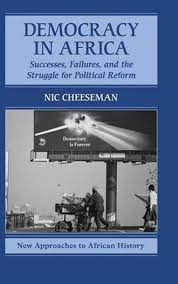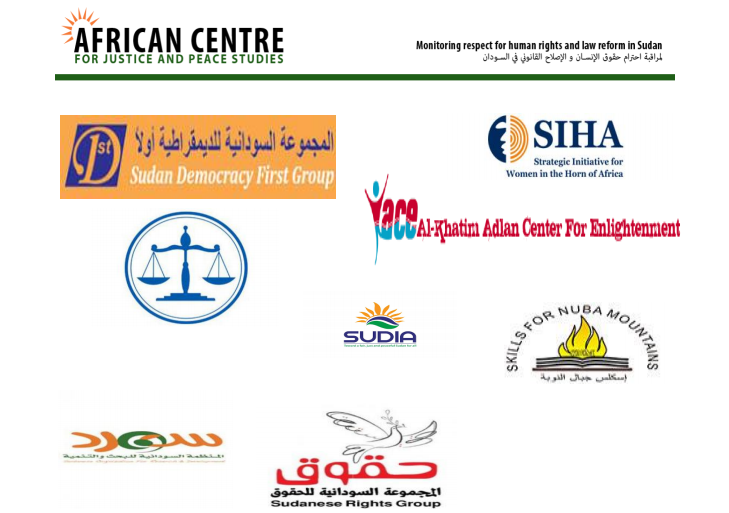Sudan’s alliance of opposition and protest groups held a general strike on Tuesday as tensions mounted with the country’s military rulers over the transition to democracy, Reuters reports.
Pro-democracy and civil society groups are concerned by the role being played by a military figure closely associated with human rights abuses, including the atrocities in Darfur.
Mohamed Hamdan Dagalo, known as Hemedti, serves as deputy head of the Transitional Military Council, which has been running Sudan since Omar al-Bashir was ousted by the army after months of protests on 11 April, The Guardian reports:
In an interview with documentary filmmakers in 2008, Hemedti said Bashir had personally asked him to lead the campaign against the insurgency in Darfur but he denied any involvement in attacks on civilians and said he had refused orders to attack civilian areas. Magdi el-Gizouli, a scholar at the Rift Valley Institute, a thinktank focused on East Africa, said Hemedti’s rise was enabled by the Sudanese military’s strategy of outsourcing counter-insurgency operations to local forces.
“In essence, he is the reason why the rebellion in Darfur was defeated, because he was capable of recruiting an efficient fighting force that knew the local terrain well, that knew the geography well, and that had an axe to grind against farming communities in Darfur,” he said.
 Sudanese civil society groups have asked the Peace and Security Council (PSC) of the African Union (AU) to undertake an urgent mission to assess progress towards the formation of a civilian government.
Sudanese civil society groups have asked the Peace and Security Council (PSC) of the African Union (AU) to undertake an urgent mission to assess progress towards the formation of a civilian government.
Civil society is “concerned that the process of democratic transformation in Sudan may be negatively affected unless there is cohesive and impartial engagement by foreign actors,” according to Assessing Progress Towards Civilian-Led Transitional Authority in Sudan,* a report to the African Union Peace and Security Council from Sudanese civil society.
CSOs want foreign actors to engage with the Military Transitional Council and the Declaration of Freedom and Change Forces (DCFC) and “to urge international stakeholders to support the transition to civilian rule and to discourage any engagement with the parties that would result in further divisions between military and civilians,” it adds. RTWT
There are two reasons that it is so difficult for the protests in Sudan – as in Algeria – to retain momentum, according to Nic Cheeseman, Professor of Democracy at the University of Birmingham:
 First, it is human nature to focus on the person at the top rather than the system underneath them. While the person is often larger than life, their face on every banknote and on every office wall, the system that underpins their rule typically operates in the shadows. The personalisation of power in popular culture is a global phenomenon, but it is particularly acute in countries where there is a cult of personality around the president.
First, it is human nature to focus on the person at the top rather than the system underneath them. While the person is often larger than life, their face on every banknote and on every office wall, the system that underpins their rule typically operates in the shadows. The personalisation of power in popular culture is a global phenomenon, but it is particularly acute in countries where there is a cult of personality around the president.
Second, people have a good reason to want to go home. Protests are costly and dangerous, and many citizens desire a quick return to a more stable and predictable existence…..This means that no matter how much organisers implore people to stay on the streets, there is a tendency for protests to dwindle in size once the leader – the symbolic figurehead – has gone. In turn, this makes it harder to push through genuine reform at precisely the moment when the balance of power between the remnants of the regime and the protest movement is particularly important.
“Those in authoritarian regimes know this, and they also know that their ability to regain control depends on being able to divide and demobilize popular opposition,” adds Cheeseman, and the author or editor of several books, including Democracy in Africa (2015), Institutions and Democracy in Africa (2017), and How to Rig an Election (2018). “They therefore respond by offering deals that are designed to co-opt some protesters while alienating others.”
*Signatories, including several partner of the National Endowment for Democracy, include:
Africa Center for Justice and Peace Studies (ACJPS)
Al-Khatim Adlan Center for Enlightenment, Sudan (KACE)
Darfur Bar Association
Democratic Thought Project, Sudan
Nuba Women for Education and Development Association -NuWEDA
Nubsud Human Rights Monitors Organization (NHRMO)
Regional Center for Training and Development of Civil Society (RCDCS)
Skills for Nuba Mountains
Sudanese Development Initiative (SUDIA) Sudanese Organization for Research and Development (SORD)
Sudanese Rights Group (Huqooq)
The Strategic Initiative for Women in The Horn of Africa (SIHA Network)
The Sudan Democracy First Group (SDFG)








